Conclusions of the Conference “Generational Renewal in the Agrarian and Agroforestry Sectors in Europe and Spain” held on June 19, 2025.
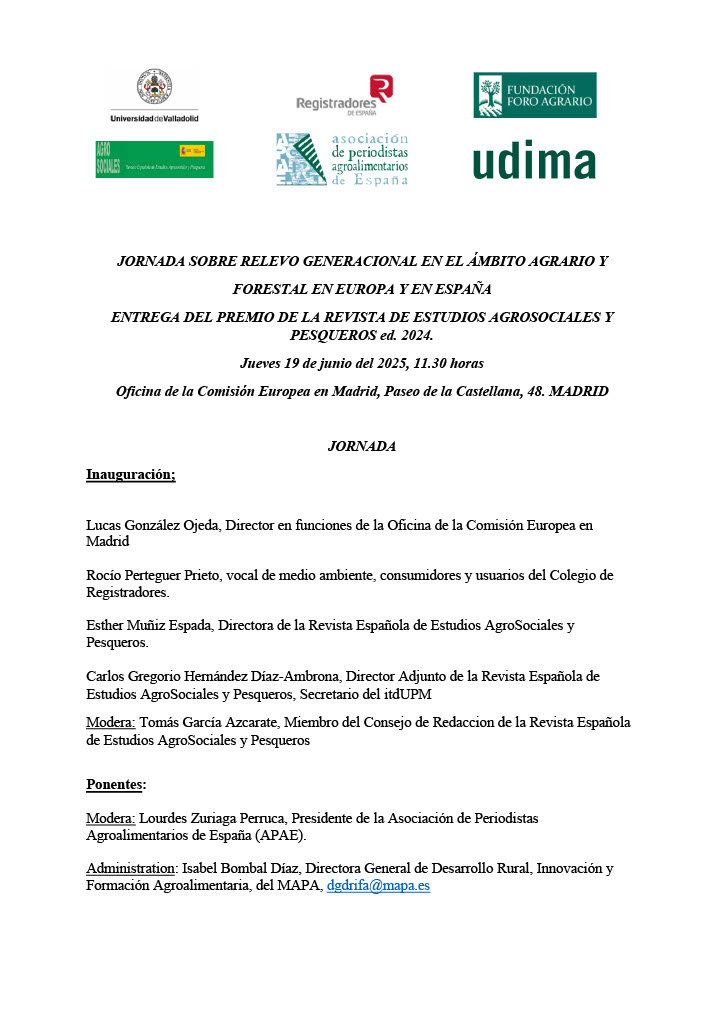
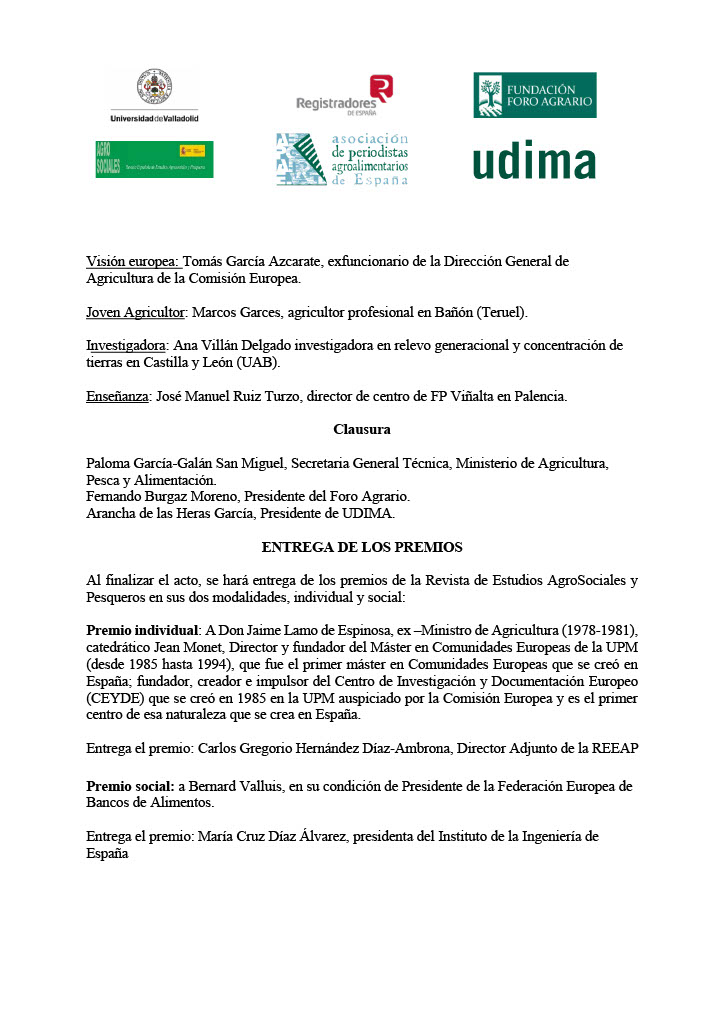
On Thursday, June 19th, the Conference on “Generational Renewal in the Agrarian and Agroforestry Sectors in Europe and Spain” was held, organized by the Spanish Journal of Agrosocial and Fisheries Studies, under the direction of Professor Esther Muñiz Espada from the University of Valladolid. The event was supported by the College of Property, Commercial, and Movable Assets Registrars of Spain, the Agrarian Forum Foundation, the Association of Agro-Food Journalists of Spain (APAE), the University of Valladolid, and the Distance University of Madrid (UDIMA). It took place at the European Commission Office in Madrid.
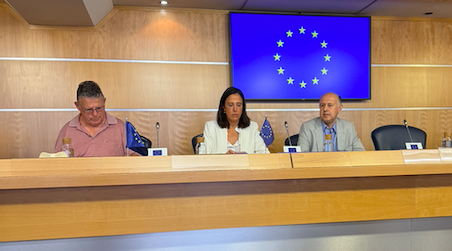
It is worth noting that during the opening session, Rocío Perteguer Prieto, representing the College of Registrars, particularly emphasized that agricultural holdings—whether structured as commercial or civil companies, or in the case of individual agricultural entrepreneurs registered in the Commercial Registry—have the possibility of growth through the sale of productive units via the Public Insolvency Registry, thus facilitating the transfer of businesses or the attraction of investment capital.
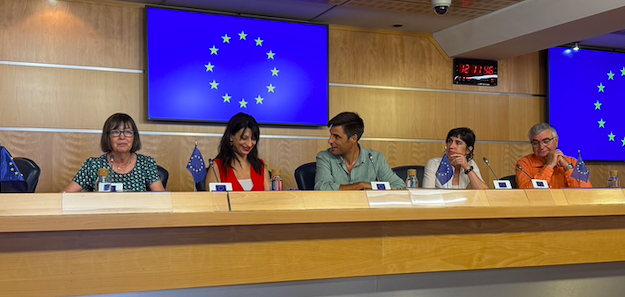
Regarding the development of the sessions, there was consensus among participants that generational renewal is one of the major challenges facing family farming, both in Spain and in Europe. Isabel Bombal Díaz, Director General for Rural Development, Innovation, and Agro-food Training at the Ministry of Agriculture, Fisheries and Food, reported that in Spain, only 4% of farm holders are under 35 years old, while 67% are over 55, with an average age of 57. For this reason, facilitating the incorporation of young people into farming is one of the cross-cutting priorities of both the Ministry and the Spanish Strategic Plan for the Implementation of the Common Agricultural Policy (PEPAC 2023–2027).
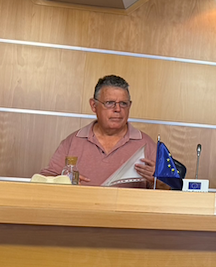
In Europe, according to Tomás García Azcárate (Doctor of Agronomy and Agricultural Economist), the situation is somewhat better but still critical. “If you keep doing the same thing, don’t expect different results.” Opportunities must be created for all those who feel a vocation for agriculture, many of whom come from outside the sector, through training, start-up support, and even changes to the mechanisms of direct aid for farmers.

Marcos Garcés, a young farmer from Bañón (Teruel), described all the difficulties he faced in the process of setting up his farm, and emphasized—among other things—the importance of training and the substantial financial needs that arise when starting an agricultural activity. While aid is available, the demanding requirements and bureaucratic procedures mean that many who need it are unable to access it.
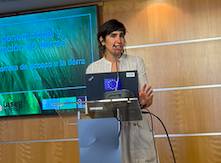
Ana Villán (Autonomous University of Barcelona) presented the preliminary results of her research on generational renewal and land concentration in Castile and León, questioning the assumption that a younger farming population is automatically more sustainable if there is no change in the production model. If the only path to economic viability is to increase farm size, intergenerational transfer of farms is at risk due to the financial burdens involved, and young talent will continue to be pushed out of the sector. A different path is both possible and necessary, based on quality and differentiated products, consumer proximity, organic farming, and product valorization.
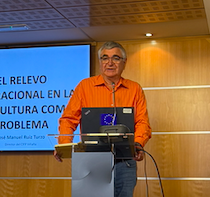
José Manuel Ruiz Turzo, Director of the Viñalta Vocational Training Center in Palencia, stressed the importance of improving living conditions in rural areas if we want new entrants. Without underestimating the importance of specific agricultural measures—and especially training and skills development—the real appeal of rural life would increase significantly if there were adequate local services, not only sector-specific ones (which are also needed), but in-person and nearby services for daily life.
The roundtable ended on a positive note. The various responsible administrations are increasingly aware of the challenge. For example, the European Union, through the Common Agricultural Policy (CAP), has allocated €8.5 billion to support young farmers, with the goal of enabling 37,000 Europeans to become owner-farmers by 2027. Moreover, the “Rural Proofing” mechanism, which aims to ensure that policies and laws do not have disproportionately negative effects on rural areas, has been incorporated into Spain’s national legal framework.
The topic of generational renewal is often discussed in the context of agriculture. Nevertheless, it remains essential and fundamental, and is still awaiting the most effective solutions.

